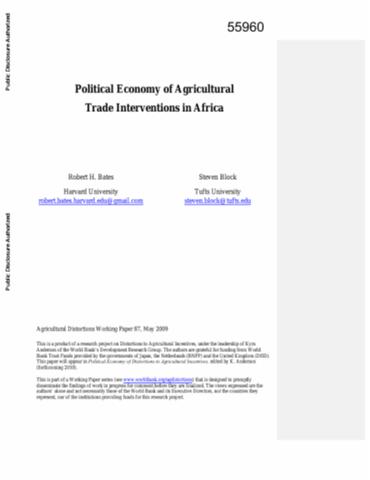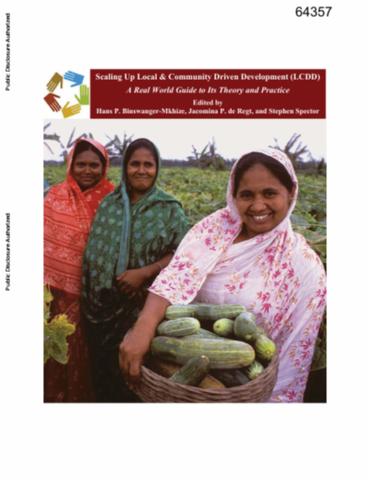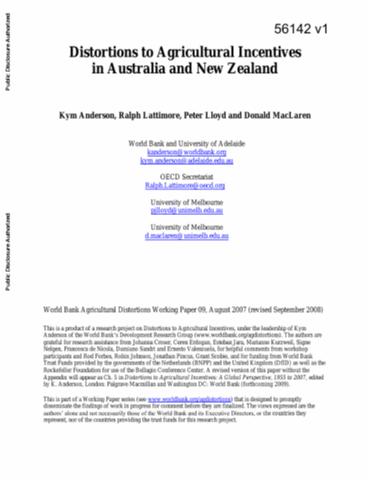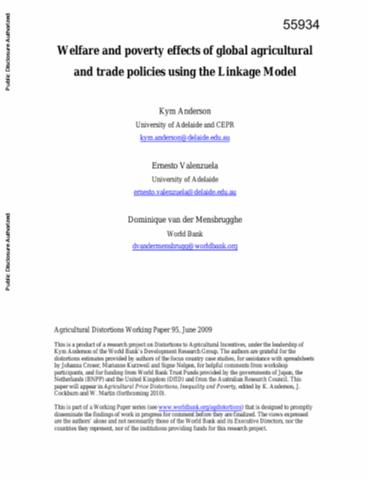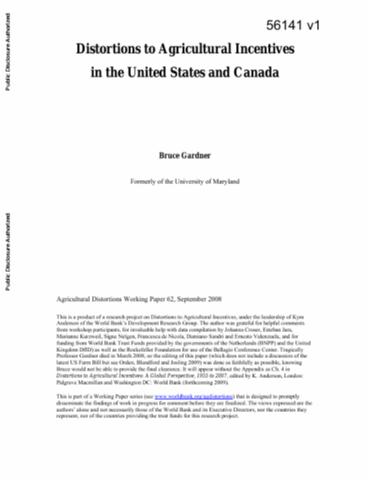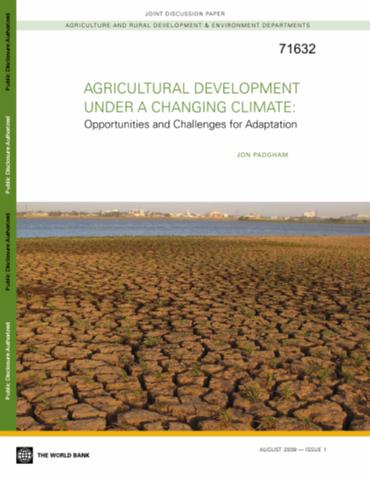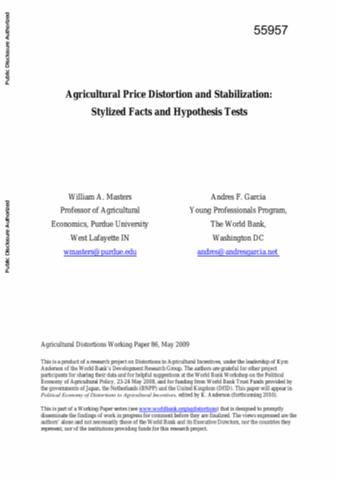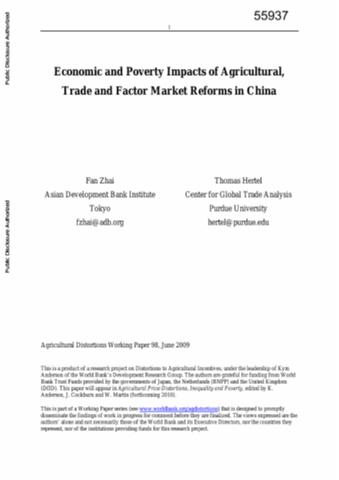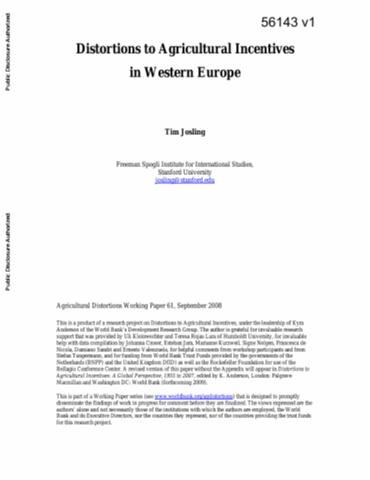Political Economy of Agricultural Trade Interventions in Africa
This paper uses new data on agricultural policy interventions to examine the political economy of agricultural trade policies in Sub-Saharan Africa. Historically, African governments have discriminated against agricultural producers in general (relative to producers in non-agricultural sectors), and against producers of export agriculture in particular. While more moderate in recent years, these patterns of discrimination persist. They do so even though farmers comprise a political majority.

